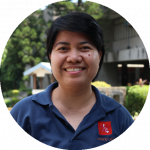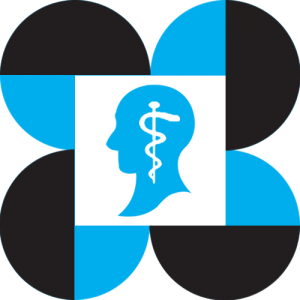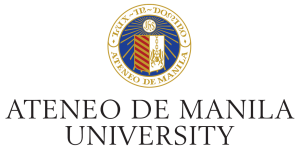eHealth Initiative
Formulation of cost-effective eHealth strategies which reflect principles of transparency, ethics, and equity through partnership with sectors other than health.
Forging of transparent, equitable, and ethical public-private partnerships in order to gain resources for the improvement of eHealth content.
Development of capacity and infrastructure ensuring that the eHealth beneficiaries meets quality, safety, and ethical standards.
Establishment of global eHealth observatory that documents and analyzes the developments and trends, informs policy and practice in other countries, and reports regularly on the use of eHealth worldwide.
Promotion of health and healthy lifestyles through eLearning, and provision of evidence, information, and guidance in support of, and for the management of eHealth services.
“eHealth Philippines is an internet linked community where people can interact with each other on specific health issues, topics, and at the same time have access to the research databases, journal articles, advisories, and other health related information”
eHealth Philippines
eHealth Philippines (ehealth.ph) serves an information gateway for eHealth initiatives on the Philippines which creates space for lifelong learning of health practitioners to improve the quality of life of the people. The website takes on a community-based approach in generating and publishing information that will help its readers to appreciate, learn from, and contribute on the growing eHealth activities in the country as we course through in achieving All for Health Towards Health for All.
Overall, the website aims to improve the flow of health information in the country and to develop an accessible, timely, and relevant information resources for the health community. Also, ehealth.ph wants to sustain content and infrastructure development and to develop capacity building tools that match absorptive capacity of information users. Lastly, the website aims to build a network and a community of health practitioners where they can share their experiences and expertise.
As ehealth.ph website aims to mobilize the use of ICT to process and to deliver information in the health community through an online portal, it has undergone series of developments. The first online portal was launched on 1998 which was mainly offered to health researchers and the community alike. From a research repository, the website was re-launched in 2003. It offered different information services such as health facility registry, learning modules, government policies and health industry information.
Following the trend on ICT development, ehealth.ph was then re-launched on 2012. The website offered forums, conferences, and blogs as an additional feature of the website. To date, the on-going development of the website enhanced the existing features to better help the health community in addressing health information gaps.
National eHealth Program
Two main challenges of today’s health system are access to health care services, and access to real time information for decision making. At present, 70% of the population living in rural areas are still struggling with no or limited access to quality inpatient and outpatient care services. Recent health demographics studies showed that the segmented distribution of the health facilities and healthcare providers contribute largely to this alarming situation as exemplified by the fact that only 13% of healthcare providers and 40% of tertiary hospitals are situated in non-urban areas; let alone that on the average, the time it takes to travel to a local health facility usually takes around 39 minutes.
Moreover, delayed access to timely, reliable, accurate, and complete health information contributes to the challenges faced by decision makers. This condition is further worsened by various health data coming from disparate systems that use differing formats, lacking harmonization, and putting additional strain on already compromised data quality. Further, poor recording, processing and transfer of data from the health center/rural health unit to the provincial or city health office, the regional health office, and to the DOH Central Office takes more than a year with data validation at various levels.
Consistent with the foregoing, the health sector through the leadership of the Department of Health (DOH) has recognized the necessity of using information and communication technologies (ICT) for health or eHealth as one of the enabling strategic instruments not only to address these current disparities in service care delivery, and timely access to information for better decision making and intervention, but also, largely, to support and facilitate the achievement of the Universal Health Care (UHC) goals of better health outcomes, sustained health financing, and responsive health system. In its broadest sense, eHealth is concerned with improving the flow of information, through electronic means, to support and facilitate the delivery of quality and responsive health services, and better management of health systems and service delivery networks. It is envisioned that, “By 2020, eHealth will enable widespread access to health care services, health information, and securely share and exchange client’s information in support to a safer, quality health care, more equitable and responsive health system for all the Filipino people by transforming the way information is used to plan, manage, deliver and monitor health services.”
Guided by the Philippine eGovernment Master Plan of linking government data centers and databases to create a secure network for government information systems, and harmonize information technology systems, programs and projects in the public sector through the Medium-Term Information and Communication Technology Harmonization Initiative (MITHI), which is spearheaded by the Department of Budget and Management (DBM), DOST, and the National Economic Development Authority (NEDA), the Department of Health joined hands with the Philippine Health Insurance Corporation (PhilHealth) and Department of Science and Technology (DOST) in the development and implementation of the Philippine eHealth Strategic Framework and Plan (PEHSFP) 2013-2017.
The collaboration and partnership of the stakeholders are embodied in the issuance of the Joint DOH-DOST Department Memorandum (DM) No. 2013-0200 on the Creation of a Joint National Governance on eHealth (JNGeH), which later became the default MITHI eHealth Committee or Health Cluster, and later reconstituted with additional membership from the University of the Philippines Manila and Commission on Higher Education in April 2015 through Joint DOH-DOST DM No. 2015-0097 and 2015-0098. The aforesaid DM’s principal intents are to achieve synergy in the development, updating and implementation of the Philippine eHealth Strategic Plan to guide the establishment and sustainability of the National eHealth Program, and ensure harmonization, alignment and interoperability among various eHealth initiatives, programs and/or projects across the country, and in accordance with the MITHI objectives and international practices and directions.
Central to all these efforts is the robust collaboration and partnership among the various public and private segments in the healthcare and ICT sectors. The desired goal is an ICT-enabled environment for purposive, coordinated, harmonized and productive action among major stakeholders in building consensus on policies and protocols, facilitating optimal use of shared resources, and investing in ICT capacities in terms of infrastructure and competencies to support the national health system goals of better health outcomes, sustained health financing and equitable and responsive health systems.
Source:
National eHealth Program Management Office – Department of Health eHealth MITHI Cluster. (n.d.). National eHealth Context (Overview). Retrieved from: http://ehealth.doh.gov.ph/index.php/contact-us#openModal9
Collaborators

Dennis B. Batangan
Dennis B. Batangan, M.D.,M.Sc. is the project director of the eHATID LGU project at the Institute of Philippine Culture – Ateneo de Manila University. He is a health social science researcher and public health specialist. He has a degree in B.S. Psychology (cum laude, 1982) from UP-Diliman and subsequently finished medicine at UP-Manila (Doctor of Medicine, 1986). He has a Master of Science degree (Major: Community Health for Developing Countries) from University of Heidelberg.

Michelle M. Macalintal
Ms. Michelle Macalintal is the Project Manager of the eHATID LGU project and eHATID Technicom Project at the Institute of Philippine Culture – Ateneo de Manila University. She is a graduate of BS Mathematics from the University of the Philippines-Diliman and she has completed the Leaders in Innovation Fellowship 2018 under the Newton Agham Programme of the British Royal Academy of Engineering and the Philippine Department of Science and Technology.

Patria Luwalhati Garcia
Ms. Patria Luwalhati D. Garcia is the Technical Component Senior Research Assistant at the eHATID LGU project under the Institute of Philippine Culture – Ateneo de Manila University. She is a graduate of BS Clinical Psychology from the Polytechnic University of the Philippines. She is widely involved in the technical development and interoperability component of the eHATID LGU application.

Jan Jacob Carpio
Mr. Jacob Carpio is the Knowledge Management Component Senior Research Assistant at the eHATID LGU project under the Institute of Philippine Culture – Ateneo de Manila University. He is a graduate of BS Psychology and is currently taking up his master’s degree in Philippine Studies at the University of the Philippines – Diliman. His work is largely involved in the deployment of the eHATID LGU application and project documentation.

Jaztine A. Calderon
Mr. Jaztine Calderon is the Knowledge Management Component Junior Research Assistant at the eHATID LGU project under the Institute of Philippine Culture – Ateneo de Manila University. He is a graduate of BS Development Communication at the University of the Philippines – Los Baños. He is largely involved in the development of the eHealth Philippines website and project documentation.

Dessy Rae Bautista
Ms. Dessy Rae Bautista is the Technical Component Junior Research Assistant at the eHATID LGU project under the Institute of Philippine Culture – Ateneo de Manila University. She is a graduate of the Bachelor of Arts Major in Diplomacy and International Relations in the Ateneo de Manila University and is currently taking up her master’s degree in Philippine Studies in the University of the Philippines – Diliman. Her work is involved with the technical developments of the eHATID LGU application.
Contact Us
- email: info@ehealth.ph
- contact no.: 0918 643 2249
- Address: Rm. 209 2/F Frank Lynch Hall, Social Development Complex, Ateneo de Manila University, Katipunan Ave., Loyola Heights, Quezon Cit



